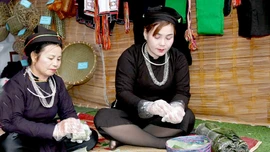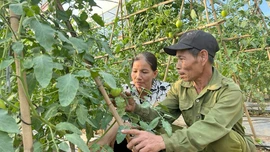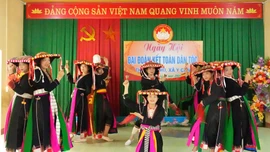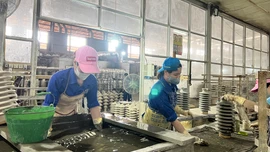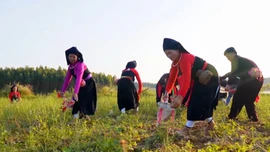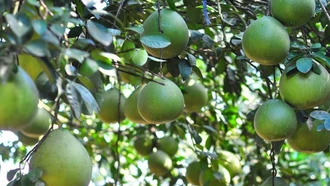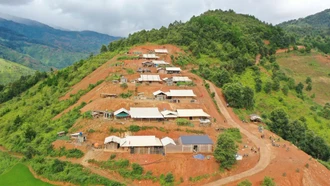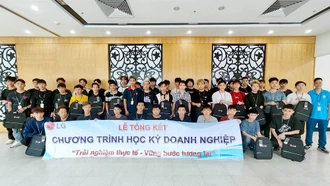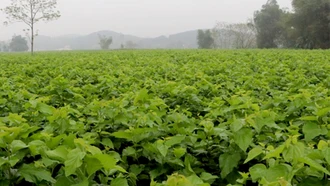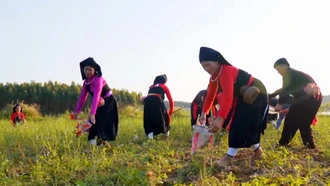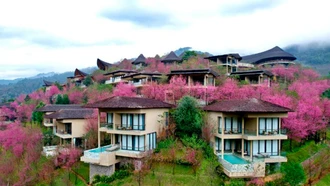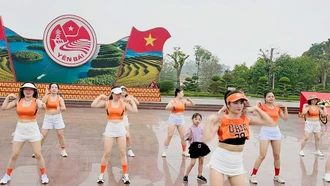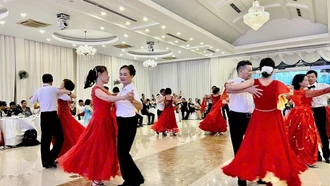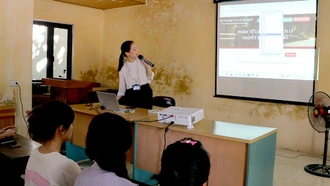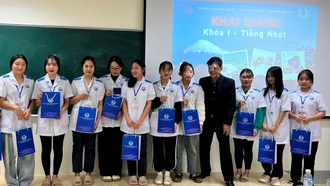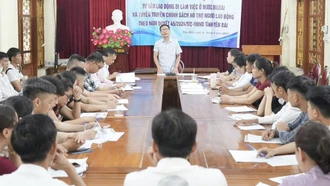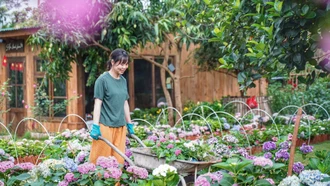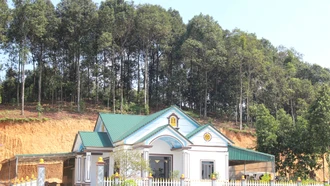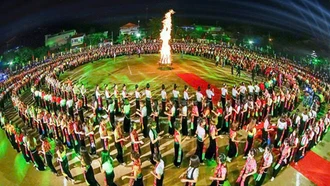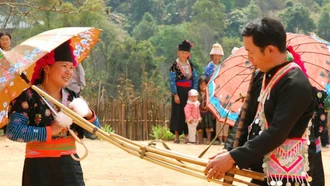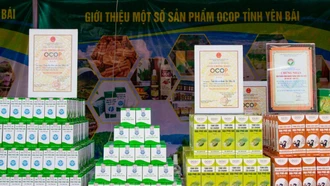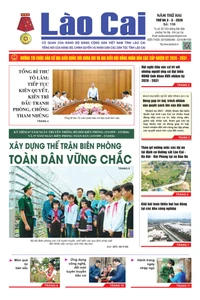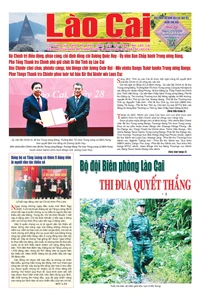Formed alongside the construction of the North’s first hydroelectric plant during the resistance war against the United States, Thac Ba Lake has now become the "green symbol" of Yen Binh District. With over 1,330 large and small islands scattered across the lake, along with a diverse ecosystem of flora and fauna valuable for both conservation and ecotourism, Thac Ba Lake serves as a vital water source — a "lifeline" for communities living along its shores, and a unique tourism asset that captivates visitors with its pristine beauty and picturesque scenery that changes with the seasons. Beyond its stunning nature, Yen Binh is also known for its strong cultural traditions and is home to more than 20 ethnic minority groups.
Among them, the Tay, Dao, and Cao Lan communities still preserve many traditional practices such as "then" singing, the "dan tinh" instrument, the Cap Sac ritual, harvest festivals, swidden farming, brocade weaving, and herbal wine brewing. Particularly, villages along the lakeside such as Vu Linh, Han Da, and Xuan Lai retain rich cultural traditions that serve as a valuable foundation for developing community-based cultural tourism, allowing visitors to experience and explore both the natural landscape and the everyday life of local people.
Among localities with community tourism models, Vu Linh is one of the first lakeside communes to develop such a model. With 16 households engaged in community tourism and 20 homes meeting tourism standards, the commune has built a community-based tourism network tied to cultural preservation. Households have renovated their stilt houses and gained new skills in hospitality, cooking, and cultural storytelling.
As a result, farmers who previously relied on slash-and-burn cultivation and fishing now enjoy a more sustainable livelihood through tourism. Visitors to Vu Linh can explore the lake by boat, visit caves, bathe in streams, and experience local life by living, eating, and working alongside the locals.
Tran Anh Tuan, a visitor from Hanoi, shared: "The pure nature, the vast lake, the peaceful atmosphere, and the well-preserved local cultural values in Vu Linh gave me a unique experience. Participating in daily activities such as fishing and farming with the locals helped me better understand their lives and traditions.â€
In parallel with developing community-based tourism, Yen Binh District places strong emphasis on environmental protection and cultural preservation. The district regularly organizes training courses on sustainable tourism practices, lake resource protection, environmental sanitation, and promoting ethnic cultures. Annually, the district hosts various cultural events linked to tourism, such as the Dai Minh Pomelo Festival and the Thac Ba Lake Boat Racing Festival.
These festivals combine ethnic cultural performances with pomelo picking contests, displays of agricultural products, and lake tourism promotions. Additionally, traditional festivals such as the Dao Quan Chet people’s Cap Sac ceremony, the Tay people’s ancient Then ritual, and the Down-to-the-Field Festival — along with seasonal folk art events — have been revived, preserved, and widely promoted during holidays and festivals. In the first four months of 2025, Yen Binh welcomed over 130,100 visitors, including more than 17,300 international tourists; total tourism revenue reached 114.6 billion VND.
It is evident that by harmoniously integrating natural resources with indigenous cultural values and focusing on people-centered development, Yen Binh District has preserved the soul of its land and people, charting a new course for tourism activities while boosting local economic development.
Le Thuong







